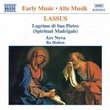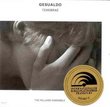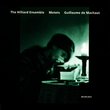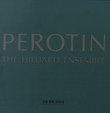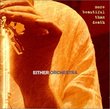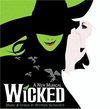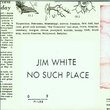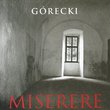| All Artists: Hilliard Ensemble, Orlande de Lassus, David James, Gordon Jones, John Potter, Rogers Covey-Crump Title: Lassus Members Wishing: 1 Total Copies: 0 Label: ECM Records Release Date: 10/27/1998 Genre: Classical Style: Opera & Classical Vocal Number of Discs: 1 SwapaCD Credits: 1 UPC: 781182165823 |
Search - Hilliard Ensemble, Orlande de Lassus, David James :: Lassus
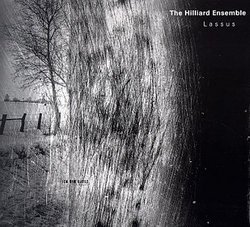 | Hilliard Ensemble, Orlande de Lassus, David James Lassus Genre: Classical
Many listeners today avoid Requiems, presuming that funeral masses must be depressing. Not so--many of them, like the Lassus recorded here, have lovely major-key part-writing and a sweet, tranquil air. The Hilliard Ensembl... more » |
Larger Image |
CD DetailsSynopsis
Amazon.com essential recording Many listeners today avoid Requiems, presuming that funeral masses must be depressing. Not so--many of them, like the Lassus recorded here, have lovely major-key part-writing and a sweet, tranquil air. The Hilliard Ensemble captures these qualities beautifully at the beginning of this disc: the first three tracks contain their most engaging singing in years. By track four, unfortunately, their dour streak emerges: however attractive Lassus's writing, it's difficult to stay involved with performances so aloof. Disappointment turns to serious frustration with Prophetiæ Sibyllarum (a set of verses purportedly prophesying Christ's birth). The astounding opening movement changes keys at least six times in 95 seconds; the reserved singing gives barely a hint that the music is at all unusual. For the Hilliard Ensemble at their best, try their Perotin CD; for a good example of Lassus in this mood, try the Penitential Psalms (Henry's Eight). To hear an engaging, enjoyable Renaissance Requiem, check out Manuel Cardoso or Duarte Lôbo, both by the Tallis Scholars. --Matthew Westphal Similar CDs
Similarly Requested CDs
|
CD ReviewsTame Chromatic Lassus 04/22/2003 (5 out of 5 stars) "I bought this CD for the Prophetiae Sibyllarum, a work I had never heard before. The Prophecies form a large scale work of Lassus's relatively brief chromatic period. Chromatic means that these pieces do not stay centered around a certain key, like D minor, but rather move rapidly from key to key, an approach to harmony that essentially disappeared from music after this period until Wagner. The chromatic approach fits the texts, which are poems that are Christian but with a strong pagan influence. (It would be an interesting problem to decide whether any of them would be acceptable as an anthem in a Roman Catholic Tridentine Latin mass). But they seem less chromatic than Gesualdo madrigals. I was actually disappointed that they did not sound more exotic. I managed to get a copy of the score, and when a group of us read through some of them, we found them fairly easy to sight-read, because the harmonic transitions are fairly natural to the ear, and like much of Lassus, their tempi are mostly on the slow side (which makes sense for Lassus because he wrote for cathedrals with long reverberation times). On balance, I found the Prophecies less musically inspired than I had hoped. But this is a fine recording of rare music, and I'm glad I own it."
|

 Track Listings (22) - Disc #1
Track Listings (22) - Disc #1
